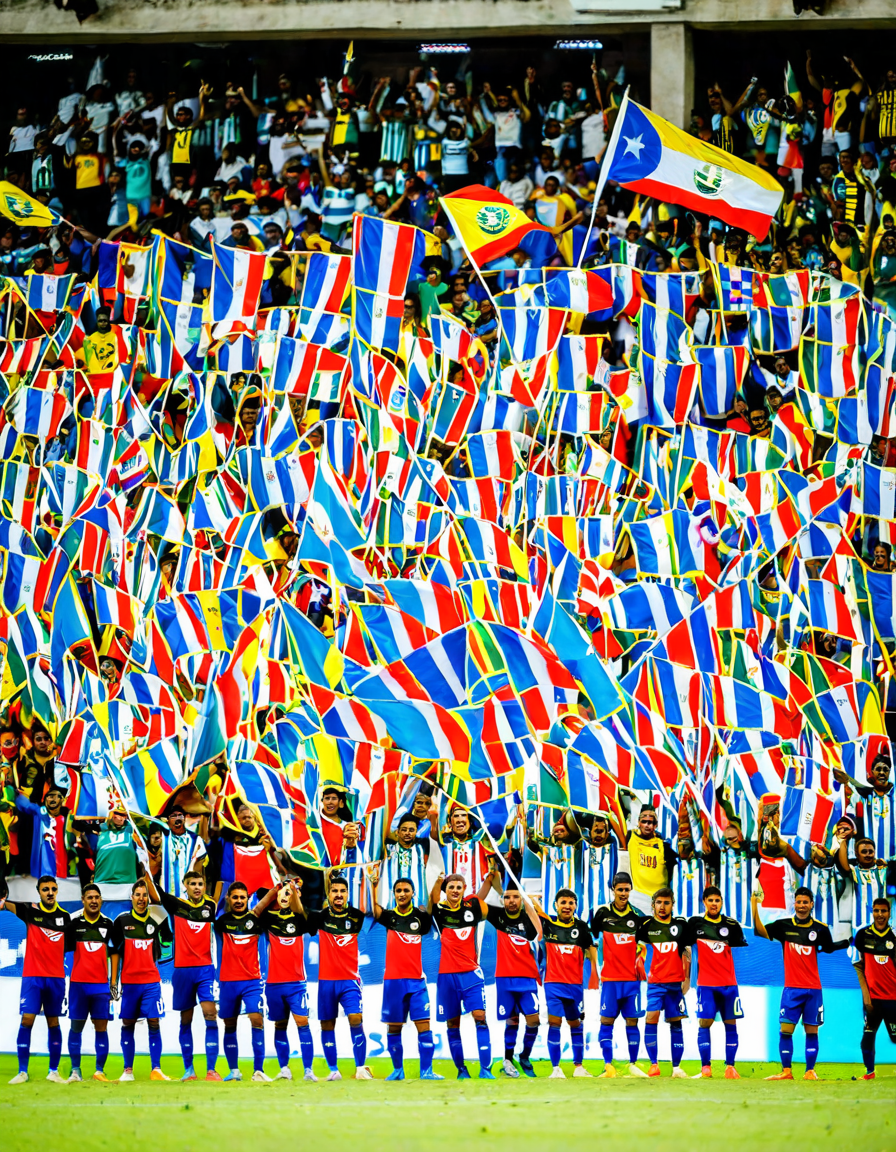
The Legacy of Copa America Winners: A Historic Overview
Copa America, renowned as the oldest international football tournament in South America, has long served as a battle ground for some of the most iconic national teams in football history. Since its inception in 1916, Copa America winners have emerged not just as champions but as pivotal players in the evolution of the game itself. With a rich tapestry woven from moments of sheer athletic brilliance and unforgettable drama, the tournament has crowned teams whose victories resonate far beyond their immediate impact on the pitch.
Over the decades, teams like Uruguay, Argentina, and Brazil have dominated the competition with multiple championships, each victory marking a significant chapter in the narrative of South American football. These triumphs signal more than just a medal; they showcase the cultural pride and passion that football instills in nations. As we reflect on these champions, let’s dive deeper into the legacies of the Copa America winners and their contributions to the beautiful game.

Top 5 Copa America Winners Who Made Their Mark
Uruguay stands proud with 15 Copa America titles, a record that highlights their historical dominance in the tournament. Their wins in 1924 and 1928 not only celebrated their football prowess but also positioned South American talent on the global stage—at a time when Europe held the spotlight. These groundbreaking victories forced other nations to elevate their game, as Uruguay’s success shone a light on the beautiful game that captured the hearts of fans worldwide.
Argentina also boasts 15 titles, matching Uruguay in footballing glory. Their latest triumph in 2021 was monumental, led by none other than Lionel Messi, whose dazzling skills and leadership not only brought the team back to the top but also fulfilled a long-sought dream for himself and the nation. This victory reignited national pride, marking a historical moment that closed the chapter on Messi’s quest for international success alongside his myriad achievements in club football.
Brazil has claimed the Copa America trophy nine times, making them a persistent force in South American football. Known for their flamboyant playing style and legendary talents like Pelé and Zico, Brazil’s victories sparkle with moments of genius. Particularly notable was their win in the 2019 Copa America, hosted on home soil. This victory showcased Brazil’s blend of young talent and seasoned stars, paving the way for a future rich in possibilities.
Chile etched its name in the record books by clinching back-to-back titles in 2015 and 2016. The win in 2015, played out in front of their home crowd, marked a dramatic shift in Chilean football history—a betrayal of the long-standing dominance by Argentina and Brazil. Following it up with another title during the 2016 Copa America Centenario illustrated Chile’s grit and determination, galvanizing both fans and players and establishing them as formidable contenders in future tournaments.
Colombia’s 2001 Copa America victory marked a watershed moment for their footballing future, illustrating the nation’s growing prowess on the international stage. Winning their first title was not just about the trophy; it represented hope and national pride during challenging times. This singular accomplishment propelled many Colombian players into the limelight, inspiring subsequent generations to chase their dreams in the sport.
The Influence of Copa America Winners on Global Football
The impact of Copa America winners stretches well beyond South America. These teams play a significant role in shaping the landscape of global football. The tournament itself serves as a launching pad for players looking to make names for themselves in esteemed leagues, particularly in the Copa Libertadores, South America’s premier club competition. Success at Copa America catapults players into international visibility, demonstrating that the tournament is crucial for carving pathways to broader opportunities in football.
Additionally, the annual Copa America draw generates excitement among fans and analysts alike. Anticipation builds as teams prepare for fierce competition, fostering spirited discussions regarding strategies and the potential legacies of both established frontrunners and emerging contenders. Every victory opens avenues for players and teams, encouraging ongoing debates about tactics and team dynamics as the competition unfolds.
Final Thoughts: The Eternal Legacy of Copa America
In the grand tapestry of football history, Copa America winners have left indelible marks. Each victorious moment has transformed into a narrative that echoes the spirit of competition, passion, and cultural identity across South America. The stories told through these wins transcend mere statistics, reflecting the highs and lows that come with the pursuit of glory on the pitch.
As the Copa America continues to evolve, the excitement for future tournaments is palpable. Fans eagerly await the next chapter in this storied competition, wondering if new legends will join the ranks of iconic Copa America winners. While past champions inspire new generations, the love for football remains deeply rooted within cultures, reinforcing that the quest for excellence is an unstoppable journey in the beautiful game.
Additional Reading
For those interested in broader sports discussions, insightful articles about sports and culture can be found in Paradox Magazine. If you’re curious about unique news updates, the latest from Fort Myers can be read here. And for basketball enthusiasts, check out the record-breaking feats like the most Points Scored in an Nba game. For local sports updates, including the youth programs that help elevate community athletics, follow Lobos Basketball.
Copa America Winners: A Journey Through Glory
Historic Triumphs and Fun Facts
Copa America winners have certainly left their mark on football history, with teams showcasing not only skill but also resilience and passion throughout the tournament. Did you know that the tournament is the oldest international football competition, dating back to 1916? This long legacy has produced memorable moments, like Argentina’s thrilling victory in 1993, their first in the tournament in 29 years, which brought intense joy to fans—a sentiment echoed by the likes of renowned journalist Soledad O’Brien’s coverage of sporting pride. Just image the atmosphere in Candlestick Park as the celebrations erupted that day.
While history is fascinating, let’s get into some quirky trivia. For instance, Brazil holds the record for the most Copa America wins, with a staggering nine titles to their name. Their flair on the pitch can rival any Hollywood blockbuster, much like the suspense built in “Creed: One Last Breath.” The historical impact of Copa America winners isn’t just about their trophies; it’s also about the players who inspired generations. Michael Russo’s Twitter insights often highlight such legends, connecting fans to the figures who shaped football in South America.
Now, speaking of migration within football, the Copa has seen several changes, including format shifts and the participation of guest teams. The Diligencia of adaptations over the years has made this tournament a true spectacle. For example, in 2016, Copa America Centenario showcased teams from both South America and North America, bringing football fans closer and generating excitement across borders—even beyond the confines of the pitch! As we’ve seen, Copa America winners are not just about the glory; they are intertwined with rich history, cultural expressions, and a legacy that resonates with countless fans across the globe.




